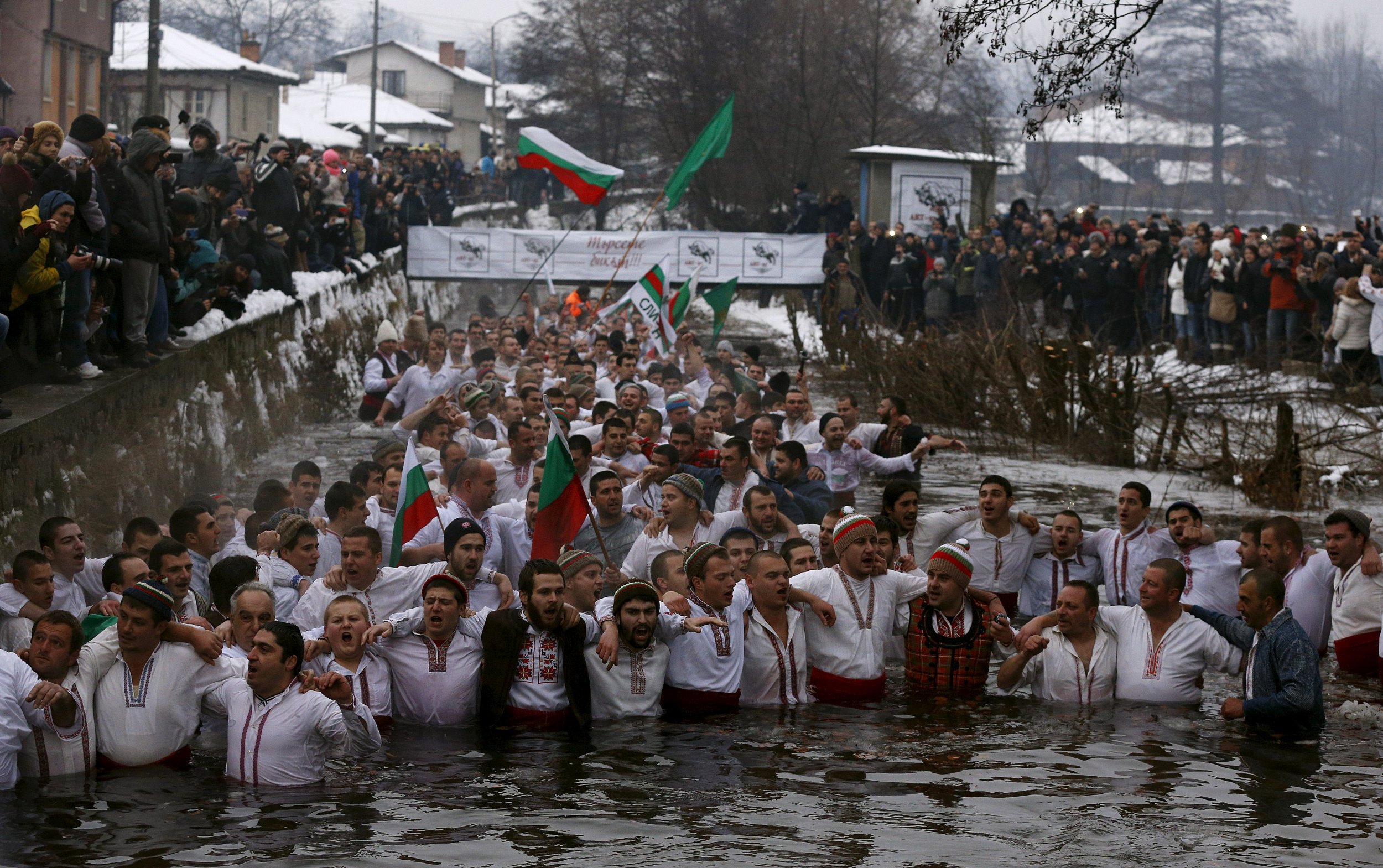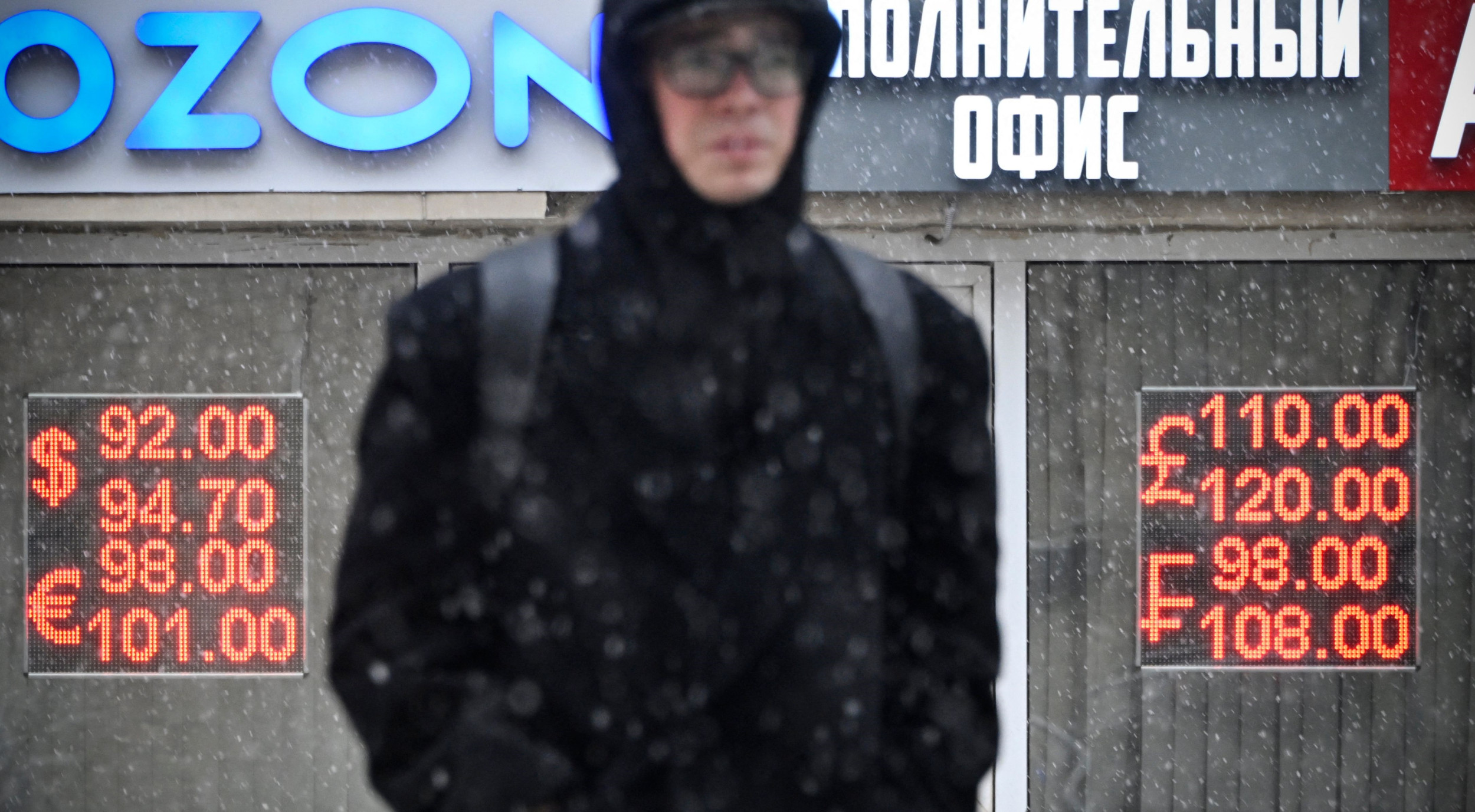
To those unfamiliar with life on the Balkans, images of hundreds of Bulgarian men leaping into frozen waters across the country in the first week of January under the watchful eyes of the town priest might seem more like an elaborate death wish than a national holiday.
Yet every year on January 6, the bravest of the brave from towns and villages across the country gather by the nearest lake, stream or sea and prepare to mark one of the country's most cherished traditions - Bogojavlenie.
In the capital of Sofia, around 60 men braved the cold of Lake Druzhba, with countless cheering bystanders including church bishops and the city mayor watching, national broadcaster BTV reports. In the country's biggest seaport, Varna, scores of men leapt into the Black Sea, while in smaller towns such as Kalofer, in the cultural, mountainous heartland of Bulgaria, the events were even bigger.
Hundreds of men clad in traditional Bulgarian dress danced their way into the River Tundzha in Kalofer, singing folk songs and locking arms in the Bulgarian horo - not unlike a Balkan conga except dancers stand side-by-side and give it a bit more bravado.
The holiday is the Bulgarian Orthodox Church's third biggest celebration after Christmas and Easter and it is the eastern analogue of Epiphany. In short, the date marks the baptism of Jesus Christ in the River Jordan, according to the old Julian calendar - not in use by the Catholic or Protestant Churches. The tradition is observed by Greece on the same day and by other Orthodox Churches such as Russia, Serbia and Macedonia a week later.
Yet, as is the case with most Balkan celebrations, Bulgaria's Bogojavlenie has attained a much more boisterous character over the centuries than your standard, dignified church procession.
The huge rush into the frozen water is an homage to Christ's baptism in the Jordan and supposedly brings blessings and good health to anyone who does it. However, it also has a competitive aspect. The group try and outdo each other in diving for a crucifix, which the town bishop hurls in the water for them to find. The greatest props and best fortune is said to go to the man who retrieves the artefact.
For each town's churches the day marks the replenishing of holy water, while for the military the day marks the anointing of the Bulgarian armed forces' flags, BTV reports. President Rosen Plevneliev held a wreath laying procession to commemorate fallen servicemen in central Sofia and presented the flags for blessing.
In smaller towns like Kalofer the celebration has flourished. National television channels broadcasted the leap into the water live from the scene. The city, being among the handful of historic towns in middle Bulgaria, full of picturesque streets and home to many national heroes, takes the tradition seriously.
It was the mayor that led a chain of hundreds into the freezing River Tundzha, where many continued dancing for over 30 minutes. The youngest of the young men who joined the revelry in the cold water was four years old, albeit on the shoulders of his father.
Uncommon Knowledge
Newsweek is committed to challenging conventional wisdom and finding connections in the search for common ground.
Newsweek is committed to challenging conventional wisdom and finding connections in the search for common ground.
About the writer
I am a Staff Writer for Newsweek's international desk. I report on current events in Russia, the former Soviet Union ... Read more
To read how Newsweek uses AI as a newsroom tool, Click here.








